Go Set a Watchman: Review of reviews
- Published
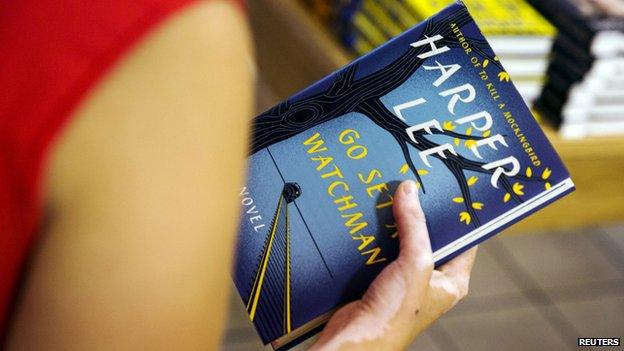
Harper Lee wrote the book in 1957, before To Kill a Mockingbird
More than 50 years after To Kill A Mockingbird was published, Harper Lee's second novel Go Set A Watchman has gone on sale around the world.
The book, set 20 years after the events of Mockingbird, is guaranteed to be a summer bestseller.
The discovery of the novel was announced in February and hailed as the literary sensation of the decade.
One of the revelations in the new book is that the much-loved character of Atticus Finch is painted a racist "bigot".
Here is a round-up of reviews from the past few days.
Wall Street Journal - Sam Sacks
"Go Set a Watchman" is a distressing book, one that delivers a startling rebuttal to the shining idealism of "To Kill a Mockingbird." This story is of the toppling of idols; its major theme is disillusion.
The Guardian - Mark Lawson
Teachers of American literature have been handed a fascinating potential course comparing and contrasting the pair, while there is clearly opportunity for a new movie of To Kill a Mockingbird combining the two genres most beloved by modern Hollywood - remake and sequel - within a structure of interlocking flashbacks that are the most fashionable form of movie narrative.
Until then, Go Set a Watchman shakes the settled view of both an author and her novel. And, unless another surprise for readers lies somewhere in her files, this publication intensifies the regret that Harper Lee published so little.
The Telegraph - Gaby Wood
Because the action takes place 20 years later than the story of To Kill a Mockingbird, it feels like a sequel. But really, it's more like a ghost: The spectre of Lee's restless, ardent thoughts in progress.
The main source of shock will be the transformation of Atticus, now 72, into a racist.
The Mail - Joanne Harris
This is not an easy book. It is a story about coming of age, brutally, into a changing world.
It is a story about putting aside childish beliefs and certainties. It is a story of acceptance — self-acceptance most of all.
But reading it, we can begin to see how far we have already come towards Scout's dream of equality and how far we still have to go.
The Independent - Arifa Akbar
Even with its weaknesses, Go Set a Watchman's voice is, at its best, beguiling and distinctive, and reminiscent of Mockingbird, and its similarity in style might finally end the speculation that Lee's childhood friend, Truman Capote, "helped" to write Mockingbird...
Whatever its failings, Go Set a Watchman can't be dismissed as literary scraps from Lee's imagination. It has too much integrity for that.
Time - Daniel D'Addario
Go Set a Watchman is also a song of experience. It's unmerciful to both Atticus and to Jean Louise, whose childish fractiousness has calcified into a rigid judgmentalism closer to her much-loathed Aunt Alexandra than she'd like to admit. She's a work in progress. And it's this evolution, her realization that the loss of innocence is as much something to be grieved and overcome as the loss of a brother, that lies at the heart of Go Set a Watchman.
New York Times - Michiko Kakutani
One of the emotional through-lines in both Mockingbird and Watchman is a plea for empathy - as Atticus puts it in Mockingbird to Scout: "You never really understand a person until you consider things from his point of view." The difference is that Mockingbird suggested that we should have compassion for outsiders like Boo and Tom Robinson, while Watchman asks us to have understanding for a bigot named Atticus.
Washington Post - Natasha Trethewey
A deep disappointment runs through the heart of the novel as the Finch family struggles with personal conflicts brought on by the social upheaval of the 1950s South. If Atticus is not willing to accept desegregation, Jean Louise also is resistant to change and anxious about it, even as she knows it must occur. A significant aspect of this novel is that it asks us to see Atticus now not merely as a hero, a god, but as a flesh-and-blood man with shortcomings and moral failing, enabling us to see ourselves for all our complexities and contradictions.
BBC Culture - Lucy Scholes
Whether feelings of disillusionment with Atticus or Watchman's technical flaws will tarnish the prowess of Mockingbird, only time will tell. Separating the two novels intellectually is easily done; but to invest in this emotionally is a harder task.
While Mockingbird undoubtedly remains the literary superstar, as Atticus remains its hero, Watchman presents a more nuanced study of racial prejudice. In light of recent tensions in America - despite the passing of what we often assume is 60-odd years of progress - this is perhaps a more timely and important portrait than we would like to admit.
- Published14 July 2015
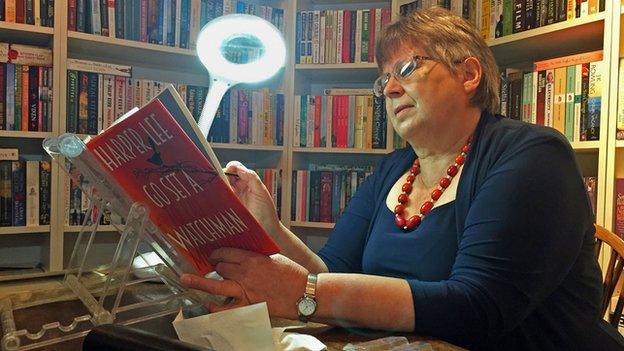
- Published14 July 2015
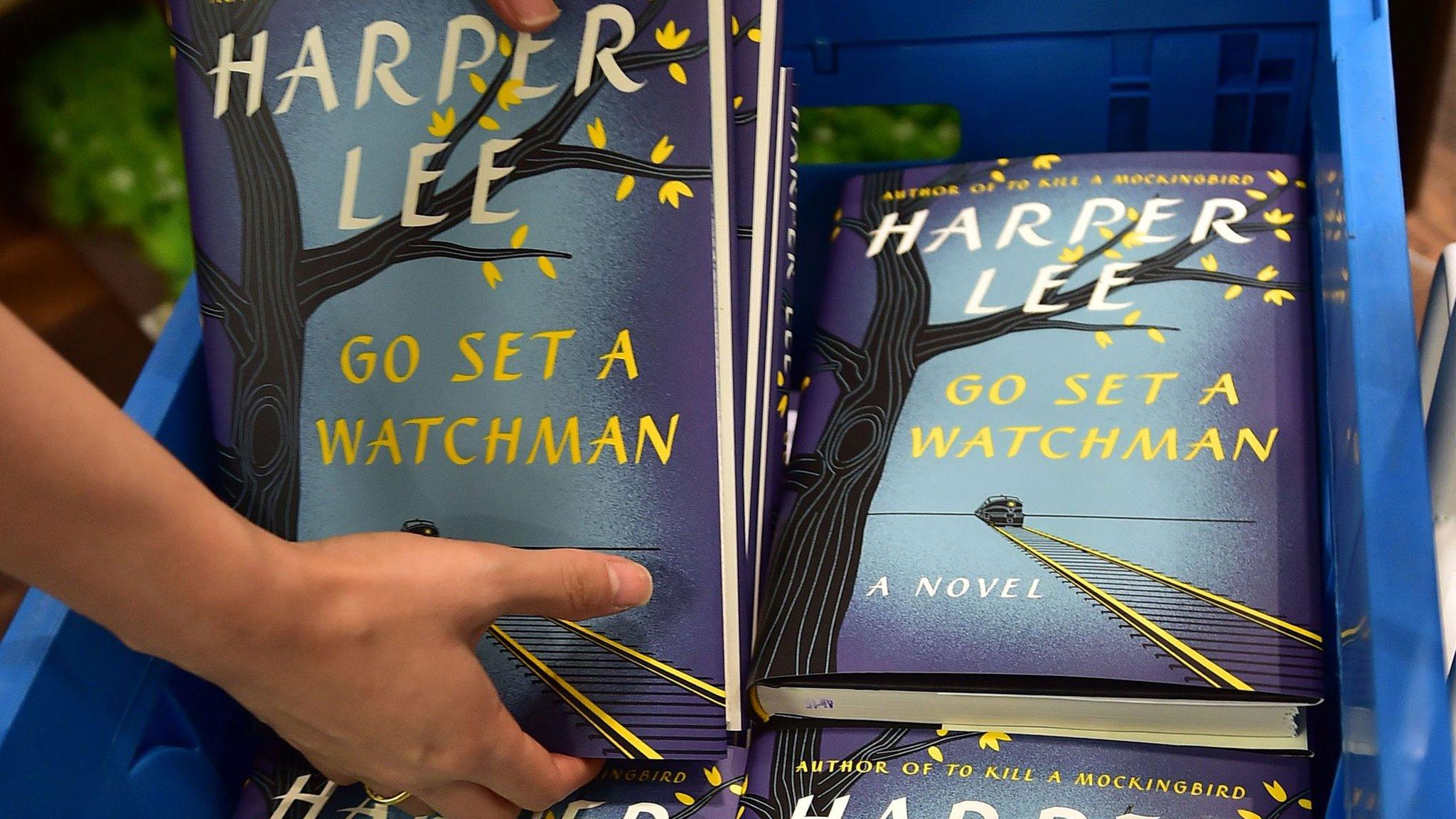
- Published12 July 2015
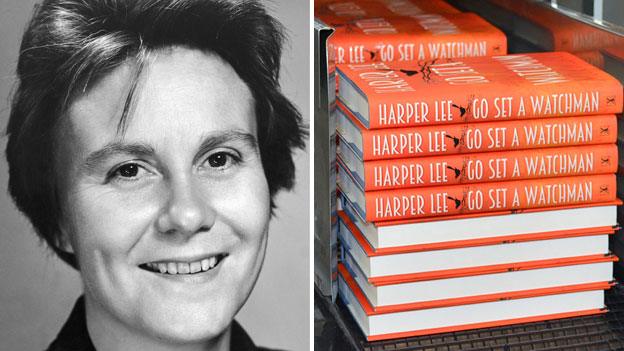
- Published10 July 2015
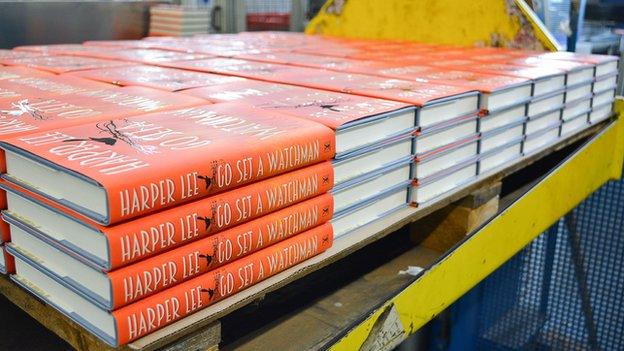
- Published10 July 2015
